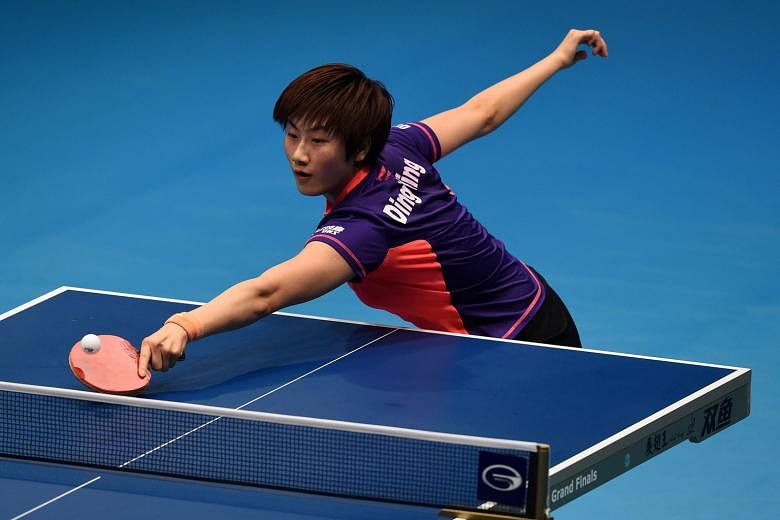Six years may have passed since Singapore stunned China in the final of the 2010 World Team Table Tennis Championships but the memory of that shock loss remains clear in Chinese paddler Ding Ning's mind.
Then 19, she was a debutante at the biennial tournament and was leading 2-0 in the first match against Singapore's Feng Tianwei but eventually lost 2-3.
The Republic took advantage of the early momentum to claim a historic scalp and even though Ding has since led her country to victory in the 2012 and 2014 editions, moving on from that chastising night in Moscow has proved difficult.
The world No. 2 told The Sunday Times: "The defeat brought me a lot of hurt. I was too young and I didn't know how to react when things went wrong.
"As painful as it was, the defeat helped me to grow as a player, taught me to prepare better and to stay cool when problems arise during a game."
Such composure was evident when midway through the interview yesterday, the makeshift walls which formed one side of the press conference room collapsed.
It drew only a brief glance from Ding before she continued speaking.
"Now before every competition I remind myself to cover all areas of preparation so that there will be no repeat of 2010."
China boast five of the top seven paddlers in the world, including No. 1 Liu Shiwen who also played in Moscow, and are overwhelming favourites to leave Kuala Lumpur with a 20th championship title.
Second-seeds Japan, despite fielding a young squad with an average age of 21.6 years, are touted as their strongest challengers.
The Japanese were runners-up in 2014 and also lost to China in the Olympic final in 2012.
World No. 4 Ai Fukuhara said: "China are the favourites, but in Russia, Singapore showed that China can be beaten.
"We might be a young team but in the arena age doesn't matter. Our young players' strategies and style belie their age."
But Ding refused to single out anyone as China's biggest competitor and said: "People will say Japan, but for us, every team, particularly those in Asia like Singapore and South Korea are strong.
"We will prepare for all of them."
Chua Siang Yee

